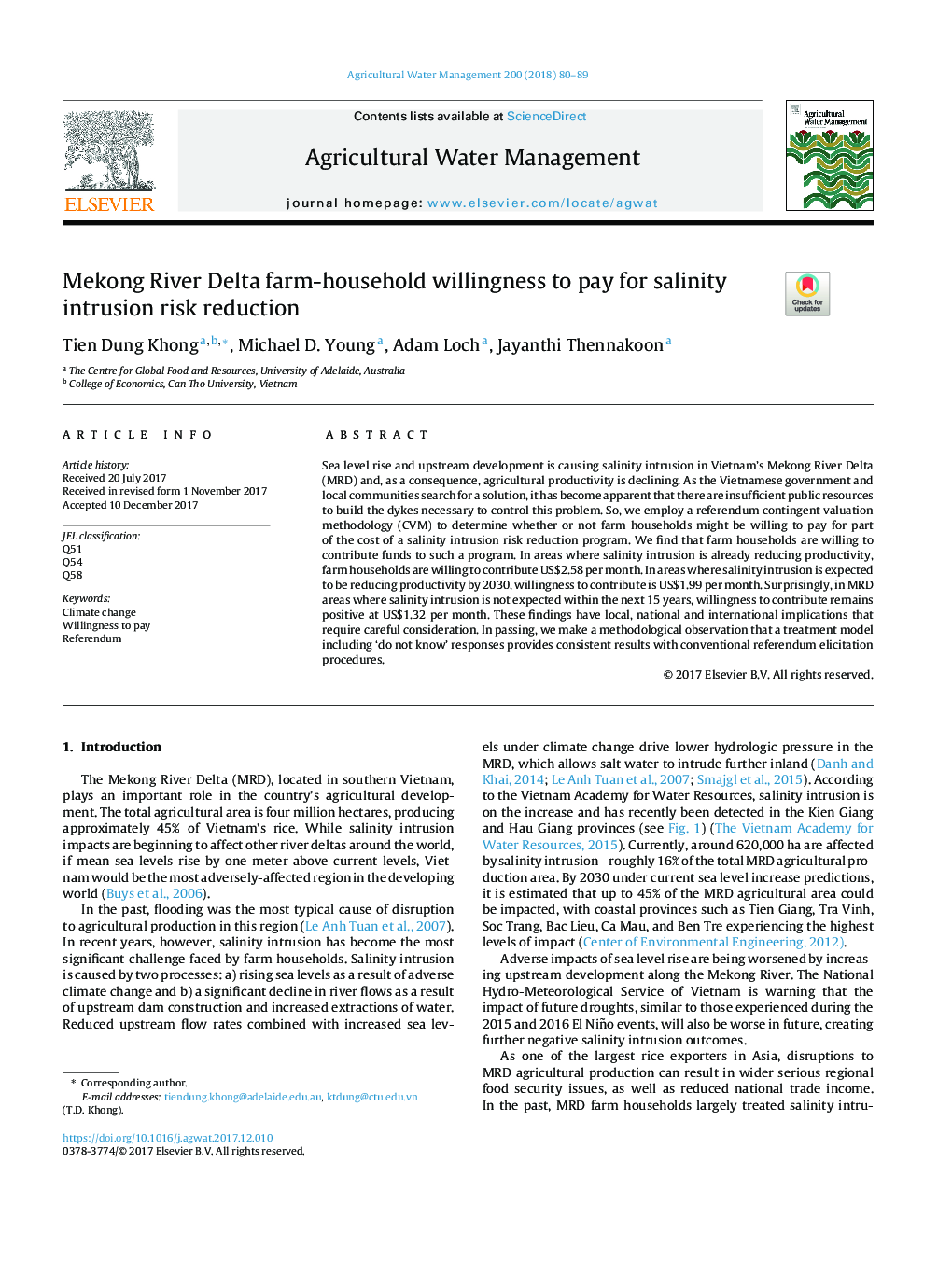| Article ID | Journal | Published Year | Pages | File Type |
|---|---|---|---|---|
| 8873114 | Agricultural Water Management | 2018 | 10 Pages |
Abstract
Sea level rise and upstream development is causing salinity intrusion in Vietnam's Mekong River Delta (MRD) and, as a consequence, agricultural productivity is declining. As the Vietnamese government and local communities search for a solution, it has become apparent that there are insufficient public resources to build the dykes necessary to control this problem. So, we employ a referendum contingent valuation methodology (CVM) to determine whether or not farm households might be willing to pay for part of the cost of a salinity intrusion risk reduction program. We find that farm households are willing to contribute funds to such a program. In areas where salinity intrusion is already reducing productivity, farm households are willing to contribute US$2.58 per month. In areas where salinity intrusion is expected to be reducing productivity by 2030, willingness to contribute is US$1.99 per month. Surprisingly, in MRD areas where salinity intrusion is not expected within the next 15 years, willingness to contribute remains positive at US$1.32 per month. These findings have local, national and international implications that require careful consideration. In passing, we make a methodological observation that a treatment model including 'do not know' responses provides consistent results with conventional referendum elicitation procedures.
Related Topics
Life Sciences
Agricultural and Biological Sciences
Agronomy and Crop Science
Authors
Tien Dung Khong, Michael D. Young, Adam Loch, Jayanthi Thennakoon,
